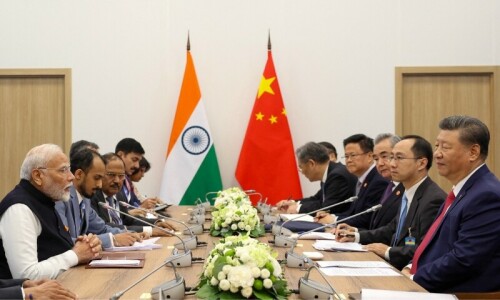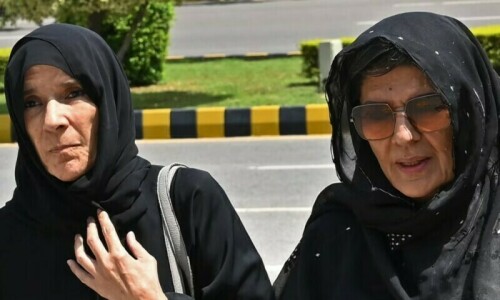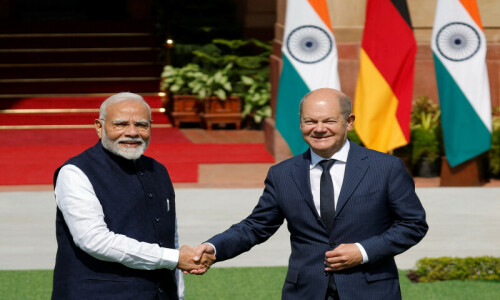PESHAWAR: The killing of veteran lawyer and politician Abdul Latif Afridi on the premises of the Peshawar High Court marks the end of an era and has left the legal fraternity and his admirers shaken.
Latif Afridi, commonly known as Latif Lala, has left behind a legacy of a decades-long struggle for civil liberties, democracy, rule of law, and the rights of people, especially those belonging to the erstwhile Federally Administered Tribal Areas.
Born in 1943, he had done his LLB from the University of Peshawar in 1968 and his career as a lawyer spanned over five decades. His election as the president of the Supreme Court Bar Association in 2020 and multiple tenures as the president of the Peshawar High Court Bar Association is a testimony to his popularity among the lawyer community.
He had also remained the vice chairman and a member of the Pakistan Bar Council.
Latif Lala and PHCBA were inseparable. Any general body meeting of the association used to be deemed incomplete without his address. He would always sit at his particular spot near the entrance of the bar room sharing pleasantries with lawyers as a matter of routine. Known for his wit and humour, Latif Lala had countless anecdotes to share with fellow lawyers as well as visitors.
He remained at the forefront of the struggle for the rights of the community and played a key role in the lawyers’ movement in 2007. While leading a lawyers’ protest during those days on Peshawar’s Khyber Road, a police APC struck him, leaving one of his legs fractured.
He was a blunt critic of militancy in the region and often called for a clear state policy on terrorism. He was also vocal against the military’s interference in politics and termed the practice usurpation of the fundamental rights of people.
Latif Lala also put up a fight against enforced disappearances in the militancy-hit province. Even though the jurisdiction of superior courts had yet to be extended to ex-Fata in 2007, the veteran lawyer continued his struggle and left no stone unturned to convince the judges to hear the cases of missing persons.
Owing to his struggle against the infamous Frontier Crimes Regulation (FCR), Latif Lala was considered a vanguard against the colonial era law. It is believed that the slain lawyer was moving spirit behind the efforts which resulted in the abolition of the draconian law in 2018.
Lala, who hailed from Bara tehsil of Khyber, was elected as a member of the National Assembly in 1997 after the adult franchise was introduced in Fata.
During his lifetime, Latif Lala was known for his progressive politics. During his political career, he largely remained associated with the Awami National Party, with which he stayed until a few years ago.
Latif Lala had served as the provincial president of the Pakistan National Party, which was subsequently merged into the Awami National Party in 1986. However, due to differences with the party leadership following its alliance with the Islami Jamhoori Ittihad in 1989, Latif Lala parted ways and formed a new political party, Qaumi Inqilabi Party (QIP).
The slain lawyer was also a part of the National Awami Party Pakistan, established by late Ajmal Khattak during the rule of military dictator Pervez Musharraf.
However, after the general elections in 2002, they came back to the ANP’s fold, again. Before his death, he was a part of the National Democratic Party — a recently-formed party led by North Waziristan lawmaker Mohsin Dawar.
For many, Latif Lala has left a vacuum that can never be filled, at least not in the near future. “A Peshawar High Court without Latif Lala is unimaginable,” said Muhammad Ayaz, his former colleague, while commenting on the death of the veteran lawyer-politician.
Published in Dawn, January 17th, 2023










































